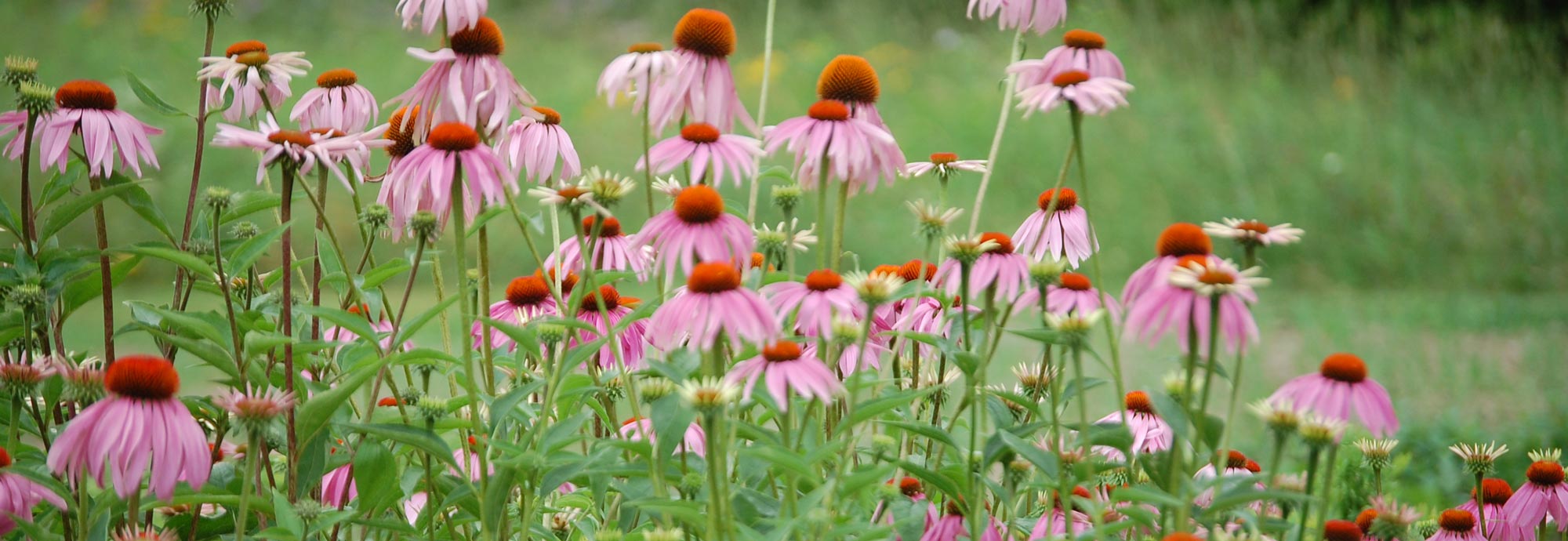Our Story: MOSES to Marbleseed
Marbleseed is a prairie plant native to the Midwest. It has a deep taproot and thrives in areas grazed by cattle and is one of the first to return, resilient after fire. This drought-tolerant, perennial plant is often used in prairie restoration efforts, providing nectar and pollen as rewards for bumblebees, butterflies, and other insects. Although it is native, today it can be difficult to find.
In 2021, The Midwest Organic and Sustainable Education Service (MOSES) received a grant from McGuffin Creative Design, a Chicago-based creative services firm, in support of our organization’s long-desired quest to rebrand. After deep conversations with staff and the Board of Directors, “Marbleseed” emerged as the new name for MOSES. The tagline “farmer-led, rooted in organic” was the last critical piece. Buoyed by success in reaching unanimous consensus, we set about the task of creating a logo.
The nature of Marbleseed calls to mind regeneration and ecosystem support. Its self-seeding nature speaks to the resiliency, adaptability, and strong community networks needed in the organic farming movement today. Its relative anonymity provides us the opportunity to create meaning.
MOSES was first incorporated in 1995, after six years of growing what had become known as the MOSES Organic Farming Conference, the largest organic farming conference in the United States. With the Organic Food Production Act (OFPA) authorized by the 1990 Farm Bill, there was a great need for farmer education and technical assistance. Increasing use of production methods that improved soil health, along with an emerging certification process created a dynamic and exciting environment for farmers who were on the frontline advocating for organic standards that could support the burgeoning organic farming movement.
Today, that need for farmer education and technical assistance continues, and so does Marbleseed’s commitment to provide it. But the organic farming landscape has changed greatly in the past three decades. Growing environmental awareness and consumer demand for organics has increased, but market capture by industrialized food and agriculture means little of that demand is reaching small and mid-scale farmers. Instead, the barriers to enter into organic farming, and the challenges of staying in business, remain prohibitively high for small and mid-scale farmers, especially farmers of color, veteran farmers, and LGBTQ farmers.
When we set about the work of choosing a new name and logo, we sought a name that could reflect not only the founding of the organization, but its future and place in a broader and more inclusive organic movement. As the organic food and farming landscape continues to evolve, we remain committed to growing the number of thriving regenerative and organic farming operations. These farms are one piece of a holistic puzzle that holds the power to feed communities and address food insecurity; provide economic justice through parity pricing for farmers and fair wages for farmer-workers; and pull CO2 back into the soil.
As we move this work forward, we remain committed to the roots of the organic movement that birthed this organization: care for the planet, nourishment for communities, and support for farmers who are working in relationship with the ecosystems that sustain us. Farmer-led, rooted in organic. That’s Marbleseed.
